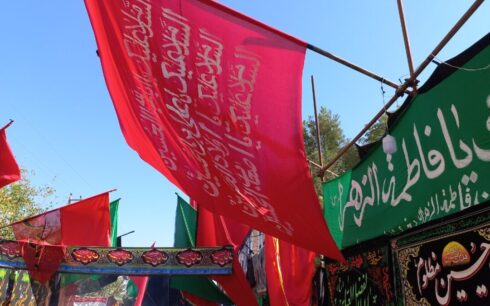HERAT, Afghanistan — The Red Crescent Society announced on Friday the distribution of 288 newly constructed homes to survivors of last year’s devastating earthquakes in Herat province.
According to the organization, 285 homes were provided to affected families in the Shakar Ab, Sang Kutal, and Band-e-Afzal areas of Gulran district, while three additional homes were distributed in Zindajan district.
The earthquakes that struck Herat last year claimed approximately 2,000 lives and destroyed thousands of homes across the province. Zindajan district, identified as the epicenter, recorded the most severe damage.
More than a year after the disaster, many survivors continue to voice frustration over inadequate living conditions. Reports indicate that millions of dollars in aid were pledged by countries and humanitarian organizations, yet the details of how this aid has been allocated remain unclear.
Last month, UNICEF described the recovery in Herat as fragile, urging sustained support for children and community resilience as winter approaches. “Communities are showing signs of recovery,” UNICEF stated. “Families are slowly rebuilding their lives, but as winter approaches, community resilience remains weak, which could reverse recovery efforts for those still struggling with the loss of loved ones, homes, and livelihoods.”
The initial 6.4-magnitude earthquake struck on October 7, 2022, displacing around 48,000 families. Reports indicate that approximately 1,480 people were killed and 1,950 were injured, with over 90 percent of the fatalities being women and children. Many survivors were forced to take refuge in makeshift shelters with limited resources.
In response, UNICEF targeted approximately 96,000 children for immediate relief, including healthcare, water and sanitation services, cash assistance, and psychosocial support. Over the past year, the agency has worked to restore essential services and infrastructure. More than one million people, including 400,000 children under five, have accessed healthcare through UNICEF-supported facilities and medical teams.
UNICEF also reported rehabilitating damaged water systems, rebuilding classrooms, and ensuring the continuity of health and nutrition services for women and children. Clean drinking water has been restored for 21,600 people, and sanitation facilities have been provided for 25,000 individuals.
Despite these efforts, UNICEF stressed that many survivors continue to face significant challenges, including limited access to education and healthcare. The agency called on the international community to strengthen support for these vulnerable communities as they continue to recover and brace for winter’s impact.





